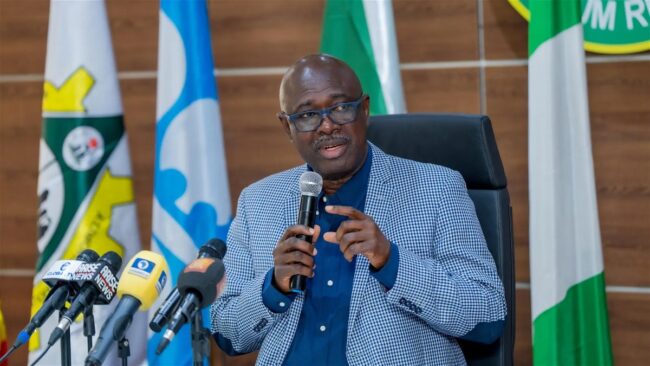The Federal Government announced on Tuesday that a consortium of South Korean investors is set to build four refineries in Nigeria, each with a capacity of 100,000 barrels.
This development was revealed by the Minister of State for Petroleum Resources, Heineken Lokpobiri, during the inaugural summit organized by the Crude Oil Refineries Owners Association of Nigeria in Lagos.
Lokpobiri emphasized the government’s commitment to fostering a conducive environment for investment in the refining sector. He disclosed that approval has been granted to welcome the consortium, although he did not disclose its name.
“We are promoting the establishment of limited refineries by ensuring an open investment climate. Recently, we approved the invitation of a South Korean consortium intending to build four model refineries, each with a capacity of 100,000 barrels, across different locations in Nigeria,” he stated.
The minister explained that the government is adopting a public-private partnership model to attract investments in both the midstream and downstream oil and gas sectors. This strategy aims to facilitate the creation of additional modular and mega refineries.
Lokpobiri expressed confidence that these initiatives would bolster energy security in Nigeria, as the government is receptive to equity investments in both modular and new refinery projects.
He highlighted the efforts of the Nigerian Upstream Petroleum Regulatory Commission in developing domestic crude supply obligation guidelines, which aim to ensure transparency within the oil industry and guarantee access to feedstock for local refineries.
ALSO READ: Edo guber: INEC denies obstructing inspection of BVAS, election materials
In addition, he noted, “We are collaborating with stakeholders to effectively implement the Modular Refinery Committee’s recommendations, which will provide special concessions to local refinery owners and secure feedstock for their operations.”
Lokpobiri further stated, “We are committed to fully deregulating the downstream sector and will establish a framework to mitigate its impact on the economically vulnerable.”
The ministry is also facilitating easier access to tax exemptions and other incentives related to the importation of refinery equipment, which forms part of its strategy to make Nigeria self-sufficient in petroleum production and establish it as Africa’s refining hub.
He mentioned that the Petroleum Industry Act (PIA) has led to the creation of the petroleum ministry and the National Gas Infrastructure Fund, with plans to allocate part of the fund to support refinery infrastructure development, similar to initiatives in the gas value chain.
“To achieve this, we will initiate a review of the PIA. Additionally, CORAN should spearhead this campaign. We are prioritizing partnerships with international institutions through the Petroleum Technology Development Fund and the Nigerian Content Development and Monitoring Board to enhance knowledge transfer for refinery operations and invest in research and development for technological advancements in the sector,” he added.
Finally, Lokpobiri revealed that to combat crude oil theft and illegal refining activities, the ministry has established an international emergency committee focused on developing home-grown solutions for refining in Nigeria.
NIGERIAN TRIBUNE
